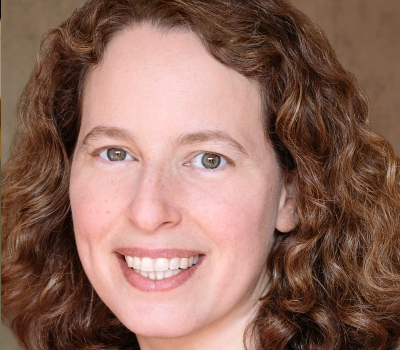Combining theory and practice to help support educators and policymakers
Educators and educational policymakers face challenging ethical decisions on a regular basis. For example, consider a student with diagnosed impulse control issues who benefits from being mainstreamed with her peers, but who also frequently disrupts class. Should she have a right to stay in the class? What do her peers deserve? What accommodations should we ethically expect the school to make, and at what cost? Or another example: When drastic budget cuts mandate teacher firings, what selection criteria should guide which teachers are fired, given the lack of valid or reliable measures of teacher quality? Is there an approach that is fair to both students and teachers?
Harvard professor Meira Levinson aims to combine her academic training in political philosophy with her eight years' experience as an urban middle school teacher in Atlanta and Boston to support educators and policymakers who address such dilemmas in their daily work. Dr. Levinson's research helps educators and policymakers ask the right questions about their moral obligations to others, offers shared language to talk about the ethical choices they face, and enables them to make better choices on behalf of our children, schools, and society as a whole.
Dr. Levinson is doing so by developing new political and moral theory to address questions on the ground, and by modifying already-developed concepts so they are responsive to the specific features of educational and policy-driven contexts. "I came into the urban classroom with a doctorate in political theory already, and I still couldn't solve some of the ethical dilemmas I faced as a teacher and on the instructional leadership team," Dr. Levinson explains. "Academic philosophy has done a great job of clarifying values and concepts at an abstract level, but it has not developed the conceptual tools to help educators make decisions on the ground in challenging and imperfect circumstances. That's where I want to make a difference." Her research aims, therefore, to develop new philosophical methods and concepts that are applicable to educators' and educational policymakers' work on the ground, and that also have the potential to transform academic philosophy and political theory themselves. In so doing, Dr. Levinson aspires to elevate educational ethics to a new level of urgency within the US and international education reform movements in addition to enabling scholars, policymakers, and practitioners to act on this urgency in productive and nuanced ways.
Current research includes:
-
Investigating Dilemmas of Justice: Dr. Levinson investigates current dilemmas of justice as a way to push political theory and educational practice forward. This research has the potential to develop new concepts and methods in educational ethics and political theory. It also may elevate the level of justice throughout our education system by enabling educators and policymakers to make more ethical decisions on behalf of children, schools, districts, and society at large.
-
Case Studies: Dr. Levinson is developing case study materials to use with teachers, school and district administrators, charter school leaders, school board members, and other educators and policymakers. The cases range from whether to curb grade inflation at a Jewish day school, to how to implement a fair discipline policy in an urban high school, to a Chinese non-profit organization's struggle over whether they should teach civic activism or high-stakes test prep to migrant youth who are excluded from regular Chinese schools.
-
Teaching Materials: Dr. Levinson hopes to develop accessible literature and teaching materials that educators and policymakers can use in order to implement educational justice systemically. These materials include multimedia cases, discussion protocols, professional development materials, workshops, and a book of case studies and commentaries. In addition, she is currently working on a scholarly book about theorizing educational justice.
Bio
After earning a B.A. in Philosophy at Yale and a D.Phil. in Politics at Oxford University in England. Dr. Levinson returned to the US and became an eighth grade teacher in the Atlanta Public Schools. "I was so privileged to have these amazing educational experiences," she explains. "I wanted to make sure that other students could have the same life-changing opportunities I had." She taught in low-income urban schools for eight years, first in Atlanta and then in Boston, and she stays involved in urban schools now as a parent, consultant, and policy partner.
Dr. Levinson has published four books and over 30 articles. Her most recent book, No Citizen Left Behind (Harvard University Press, 2012), has won awards from the American Political Science Association, North American Society for Social Philosophy, American Educational Studies Association, and National Council for the Social Studies. A Chinese translation will be released in 2015.
Dr. Levinson likes crossing boundaries of many kinds. She lived in California, North Carolina, New Jersey, Texas, England, and Israel as a child, and still loves exploring new cities, countries, and cultures. She is also excited about crossing technological boundaries in education, in part by working to develop a new HarvardX MOOC (massive online open courseware) about urban education. Dr. Levinson hopes to include online games that will allow people to experience real-world decision-making and problem solving in urban schools and districts. Dr. Levinson also enjoys cooking, playing the cello and double bass, reading, and spending time with her family.
Websites: www.justiceinschools.org , http://www.gse.harvard.edu/faculty/meira-levinson
In the News
Harvard Graduate School of Education
Harvard Graduate School of Education
The New York Times


